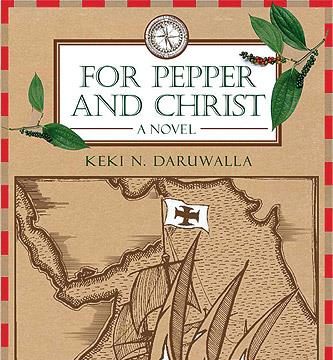The story of Vasco Da Gama’s landing on the coast of Kerala has been told elegantly as straight history. The encounter between a ruthless Portuguese captain and the short-sighted Zamorin of Calicut signally failed to bridge the gulfs between the two civilisations, and the argument was ultimately silenced by the conqueror’s cannonballs. For those who like their history leavened with fiction, a novel that centres on this event and the Portuguese quest for India’s riches would be fascinating.
Three main narrators speak in For Pepper and Christ: the priest who travels on Vasco da Gama’s ship, the young Egyptian pilot who guides them to the western coast of India, and the pilot’s friend, who is a painter. Swelling around them are intriguing and richly drawn characters enough to people the streets of Cairo, where the story opens, as well as every halt on the journey to India, as the narrative breaks into the open sea.
Taufiq, the pilot, witnesses the stomach-churning brutalities of the Portuguese, but also comes to foresee how their greed will erode the prosperity of Arabia, Africa and India. As he leads them on voyage after voyage, the blood on his own hands thickens, and his urge to expiate his sin ends in this novel’s terrible final act.
Strangely, the writer’s artistry in handling the subject falls short. Daruwalla is a poet, and one expects better-crafted prose from him. Readers are tediously reminded that Farangs are Franks and Purtugalis are Portuguese but, more importantly, the chronicle fails to achieve an organic unity. It stumbles from one voice to the next. History is spouted, in the manner of Dan Brown, by the cartographer Ibn Majid, the historian Abu Khalil, and others.
In talking of maps, Asturlabi says a map is not just a chart: “Tied up in that piece of parchment is a vision.” Readers seek a similar vision in a book, and this novel leaves them seeking.
The Portuguese quest for Indian riches
Poet Keki Daruwalla based his first novel on Vasco da Gama's landing on the Kerala coast

The Portuguese quest for Indian riches
The Portuguese quest for Indian riches



